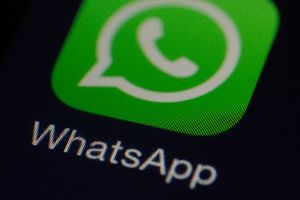With over 100 reported incidents in 2018 and 2019 each, India, the world’s largest democracy, holds the global top spot for the highest number of internet shutdowns. Having maintained the crown position since 2016, this information technology hub lost a whopping $3.04 billion to 16,315 hours of intentional internet downtime between 2012 and 2017. Conservative estimates place losses incurred by the Indian economy in 2019 alone at $1.3 billion at the least.
India’s two biggest political parties, the Indian National Congress and Bhartiya Janata Party (BJP) have taken their fight online — a realm promising anonymity, lack of immediate screening, and freedom to spread massive information rapidly. At polar ends of the political spectrum and with jarringly different viewpoints about India’s identity and ideal citizenship, their elite competition for the subcontinent’s governance is severely impacting Indian democracy by disallowing the free flow and exchange of ideas, opinions, and information. The fanning of religious, ethnic and identity-based differences for political gains has led to immense polarization and subsequent conflicts, to handle which the government has responded with the knee-jerk reaction of internet suspensions as the immediate short-term remedy.
An analysis of India’s internet shutdowns between 2012 to 2018 indicates that elite competition — struggle between its elites for electoral-backed political dominance — through deliberate dissemination of false information and fake news, directly or through sources, has led to the creation of conflict scenarios. This includes hate-speech and political mudslinging, engineered riots in the aftermath of online and offline spread of divisive information, and IT hubs coupled with abusive online troll-armies on political elites’ payrolls, all aimed toward expanding electoral gains. In a bid to control the law and order situation and arrest the further spread of conflict, the government — one of the parties in this political tug of war — has blatantly and consistently been resorting to widespread internet suspensions, citing necessary preventive or reactive action.
These internet shutdowns — absolute online blackouts at the government’s behest for anywhere between 24 to 72 hours, or longer — are a blatant violation of its citizens’ political, economic, and human rights. Their upswing since 2014, when political power changed hands from Congress to the BJP, has been stark and significant.
From 2012 to 2014, the country witnessed a total of four internet suspensions. With 15 cases in 2015 and 31 in 2016, which gave India more shutdowns than anywhere in the world, the country’s upward trajectory in internet shutdowns has been scaling new heights. In 2019, the number of internet blackouts hit 121. Simultaneously, the period also witnessed a 28 percent increase in religious riots across India wherein Muslims were overwhelmingly the victims and extremist Hindus, the perpetrators. A majority of these cases happened in BJP-governed states where party policies encouraged and emboldened Hindu extremists by openly inciting violence, encouraging and supporting perpetrators, and subsequently allowing them to go scot-free. The BJP-ruled states of Gujarat, Rajasthan, and Haryana witnessed the highest number of internet shutdowns, other than Jammu and Kashmir.
The period also witnessed an unprecedented rise in the amount of fake news, especially leading up to the 2019 general elections. Social media was repeatedly used for the spread of divisive and inflammatory material and fake news by political parties against one another and minorities, leading to severe conflict scenarios. After repeated warnings by WhatsApp to political parties against “abusing” the app, a fortnight before the elections, Facebook took down hundreds of suspicious accounts linked to both parties, for “coordinated inauthentic behavior.” Multiple pages were traced back to an Indian tech firm developing the BJP government’s apps that were found to be sharing flagrant fake news.
Hate speech directed toward minorities and mudslinging against political opponents too witnessed a sharp incline, with the internet being increasingly employed for disseminating unlawful speech by political parties. An analysis of 1,000 tweets by politicians and nearly 1,300 news articles comparing the Modi government’s 2014 to 2018 term with that of the second Congress-led United Progressive Alliance from 2009 to 2014, found that not only had VIP hate speech — to include hateful comments in the language of bigotry or calling for violence — skyrocketed by 500 percent, but also that politicians’ increased use of social media had amplified this disturbing trend. In Haryana and Uttar Pradesh, both states that went to polls recently, the use of online and offline political designs aimed toward inciting violence to derail the government and accrue political gains, followed by widespread internet suspensions, was clearly witnessed.
With India’s secular and democratic characteristics under severe threat, its internet is one of the last checkpoints to register or muzzle information, dissent, free speech, ideas, and opinions. The ramifications of India’s elite competition on the digital sphere are proving to be deadly, and its preservation is extremely integral to India’s existence as we know it.
Pallavi Shahi is a Project Consultant at the Center for Peace and Conflict Studies at the Seton Hall University. She holds a Master of Arts in Diplomacy and International Relations from Seton Hall University and previously worked as a journalist in India.

































